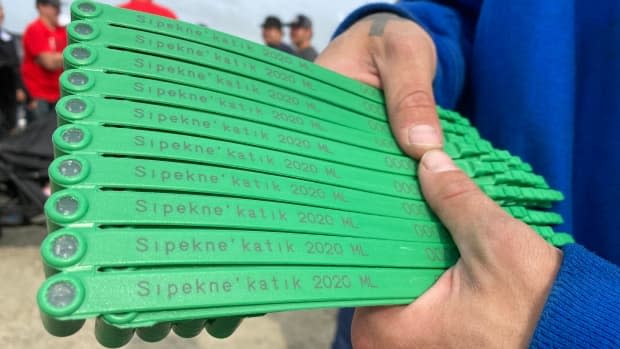P.E.I. First Nations continuing talks, consultation on Mi'kmaw fishery

The Epekwitk Assembly of Councils say they are continuing to consult with their community members and consider all information before launching what the First Nations call their "treaty protected," or moderate livelihood, fisheries.
Separate from the commercial fishery — for which the season starts next week — the right of the Mi'kmaq to fish and sell their catch was first established in treaties signed in the 1700s, predating Canada as a nation. Those treaties have since been affirmed under Section 35 of the Constitution and applied in decisions by the Supreme Court of Canada.
"Councils from both First Nations are continuing to consider all information and will only take steps to launch a treaty fishery when all input and planning has been completed," the chiefs said in a statement to CBC News on Friday afternoon.
"The chiefs are very concerned with the safety of P.E.I.'s Mi'kmaq fishers and the potential risk they are facing as a result of Minister [Bernadette] Jordan's inaccurate and inflammatory statement."
Safety 'a priority'
Last month both Chief Junior Gould of Abegweit First Nation, which intended to launch its livelihood fishery this spring, and Chief Darlene Bernard of Lennox Island First Nation spoke out against the Department of Fisheries and Oceans (DFO) and the minister.
This came after a move by the department to introduce a "new, optional" path for Mi'kmaq and Wolastoqiyik nations to launch moderate livelihood fisheries, with regulations.
Across the region, the Mi'kmaq took issue with a provision that would only sanction their fisheries if they took place during the existing commercial seasons.

The P.E.I. chiefs called this "paternalistic" and said it went against the spirit of reconciliation.
Last fall, the Sipekne'katik First Nation in Nova Scotia launched its own self-regulated lobster fishery, which was met with fierce opposition from non-Indigenous fishing communities eventually leading to violence, storage compound raids and vandalism by commercial fishers and a fire.
Chiefs Gould and Bernard said the safety of their community's fishers "is a priority consideration" as they plan when and how to launch their own treaty fishery.
They have also previously called on DFO to ensure the Mi'kmaq on P.E.I. can exercise their treaty right to fish for a moderate livelihood without fear of prosecution or threats of violence.
On Friday, the Epekwitk Assembly of Councils said they were focused on preparations for the commercial fishing season — in which community members also participate.
The statement to CBC News also said discussions between the nations and DFO are ongoing.
More from CBC P.E.I.

